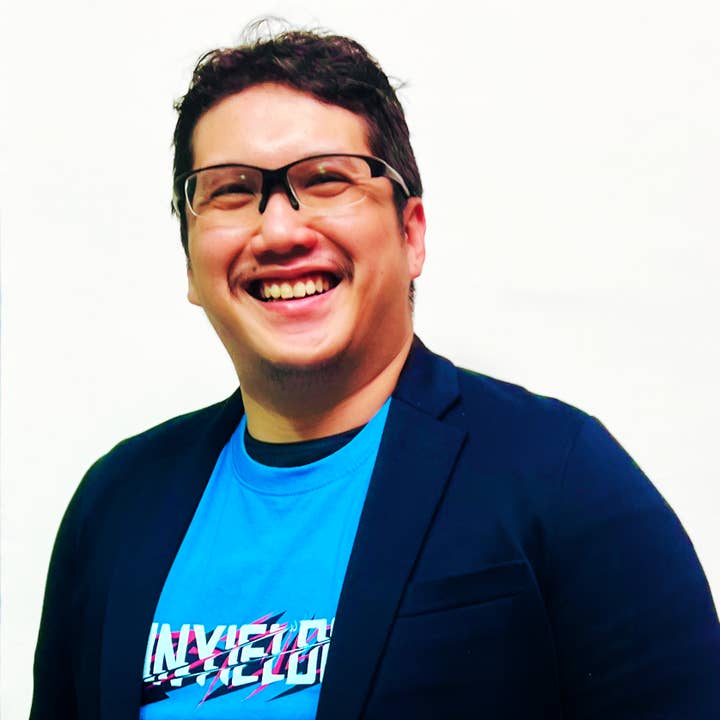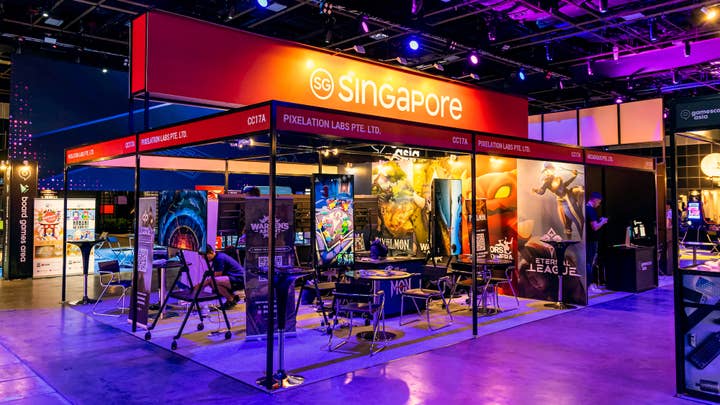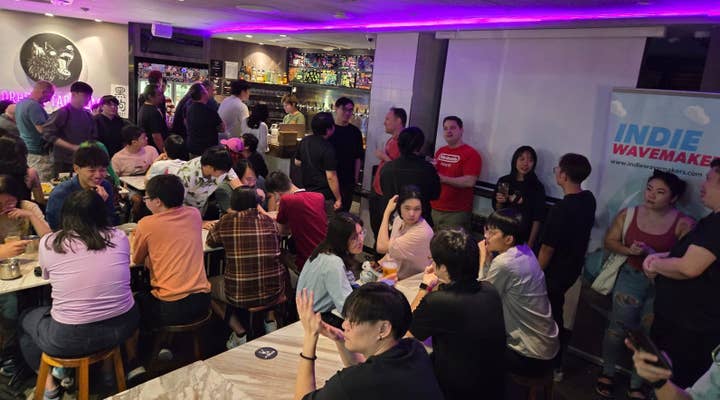Meet the Singapore trade association balancing support for indies with attracting overseas firms
We talk to SGGA chairperson Don Baey about the trade body's role and the challenges facing indies in the country
At Gamescom Asia, former Sony exec Shawn Layden described Southeast Asia as the region "where all the next great opportunities are going to come from" for the games industry.
And that's exactly what the Singapore Games Association (SGGA) is hard at work trying to achieve in its part of the region, supporting, growing, and promoting the industry of the city-state.
Don Baey, business development director at indie developer Trueworld Studios and chairperson of the SGGA, is a founding member of the trade body. He started his games career at Ubisoft, one of the many AAA developers that have established their Southeast Asian presence in Singapore.
"About five years in, I decided to go into the government," Baey recalls. "This was the year we were celebrating our 50th year of independence, [and] there was this campaign that was done by a local government agency to promote and support the games industry.
"It was a very meaningful project for me... Because from your AAA big studio, large teams, that's your view of games initially [but] there's this whole world of independent creators, from solo developers to small [and] mid-size studios. And I'd not experienced games in this way. And that was my first taster of falling in love with the indie scene.
"And that's where, as a collective in the growing Singapore industry, some of the founders also felt we needed to bring the community together, because we knew that the government support may not be there forever. Things may change, so how can we support each other? And at the same time, also be a voice to help advocate for the industry, advocate for Singapore. That's how the association was started."

That was back in 2017; at the time the SGGA was known as the Singapore Games Guild, and was not formalised as a trade association. But it rapidly grew from its early initiatives, including monthly get togethers called 'DrinkUp'.
"It started with about ten, 20 people initially just on a monthly basis, and it has grown to a level where today sometimes it's easily 70 to 100 people just showing up," Baey says.
He mentions the need for the SGGA to do some "data crunching" to get a more recent snapshot but, as of 2021, there were 160 games-related companies in Singapore, 50% of which were developers and 10% were publishers.
There have been over 250 games coming from Singapore since the first title shipped from the country in 1997, and around 20 to 25 games shipped annually from the city-state in the past five years. The most well known examples on the indie side might be Cat Quest, or Cuisineer, among others.
"Post-COVID, how that has evolved, who are still active, who are not... It's something that is a bit greyer," Baey says. "But what is interesting is that we are seeing some of the names that I've not seen for ages, suddenly coming back [with] new games."
He mentions the importance of being able to share "war stories" with other developers, and support one another, which is why the SGGA focuses a lot on providing opportunities for games professionals to get together.
"Singapore has a strong position as an international hub [but] it is also increasingly challenging to operate with rising cost of living"
"Singapore has a strong position as an international hub with many multinational corporations [MNCs] in the games and tech industry, however it is also increasingly challenging to operate with rising cost of living," Baey says. "Indies generally will have to compete for talent, given talents' preference to join larger MNCs for a stable career pathway. MNCs also generally prefer and are able to hire experienced talents, which puts a lot of pressure on smaller companies to train the junior talent pool they can only afford."
There are some challenges on the funding side as well, he continues: "Singapore has a strong attraction for investors as a major financial hub and excellent infrastructure. However, most private funding is targeted at mainstream tech sectors – FinTech, Health Tech, Deep Tech, Enterprise Solutions, etc. Investors' risk appetite or understanding about the games industry in Singapore isusually lacking.
"There are government grant schemes supporting local enterprises, [but] most are generalised across all sectors and not tailored specifically for the games industry. This makes it very challenging for an indie studio to navigate or capitalise on, especially if it's too early stage or doesn't have the track record to prove itself. This makes it doubly hard, but critical, for indies to promote themselves at international game conventions like Gamescom Asia and beyond."

Baey notes that while there's definitely a strong interest to build those ecosystems and industries, games usually require a bit of education on the government side of things.
"When you have government officers that move in and out, not many of them or very few of them really come from the games industry. So while there's an interest, how they support [and] where they support sometimes is a bit challenging.
"But our Singapore government has been very supportive in general. For example, for first time founders, there are schemes that actually support that, as well as schemes that encourage companies to hire interns or fresh graduates. But it's not targeting specifically the games industry… Games is its own thing, it's so broad and so cross disciplined.
"This is where we have to lend that voice and help educate, help our government agencies to better understand the industry, where it's going, the trends. There was an era where it was [more] about mobile games, but it shifted so much today, you can see more and more PC [gaming]."
"We can't just rely on the big studios alone, but it's still an important piece for them to have that presence in the local ecosystem"
The presence of AAA can be seen as an advantage in the country, we mention, with companies including Ubisoft, Riot, EA, Hoyoverse, Koei Tecmo, and more, established in Singapore – their role can be crucial especially when it comes to levelling up talent.
"But, with the big companies, you also need the education side of the ecosystem," Baey points out. "Our local institutions [are] also building up programs that are targeted for this industry. So, you have the AAAs or the big studios, and the education system. Of course, not every talent will end up in the big studios. Some may aspire to start up [their own company], some may work at smaller studios, etc.
"So that has to go very much hand in hand. We can't just rely on the big studios alone, but it's still an important piece for them to have that presence in the local ecosystem, to support hiring [local graduates], to have the talent circulating around the industry. So we also do see that effect of: some of the talents may start their career in the bigger studios and then move out into more indie, either starting their own or working for other independent developers, or the other way around.
"It's part and parcel of any industry. You need to have a certain critical mass that allows the talents to circulate because we also want to minimise that kind of situation where we are actually bleeding talents into other industries."

The SGGA is very focused on its mission to alleviate the challenges indies are facing, with Baey saying one of the main objectives remains to build community.
"We do that through networking, as well as organising sharing sessions. We typically have the annual industry day that we use as a bridge [between] students and the industry. Every year we always have cohorts of students, some of them [with their] game projects – so we use that as a platform for them to do that showcase with the hope to engage with the wider community, with publishers, and build that experience up."
The role of the SGGA is also to help international companies and individuals who might want to expand into Singapore, he adds, which is why shows like Gamescom Asia are important.
"We are that guiding post, a landing place for aspiring businesses that want to expand here"
"This is also part of the role being a trade association to help them understand, help them navigate, help them connect with us because usually, it's so overwhelming when you want to expand to somewhere overseas. Like, where's your starting point? How do you incorporate? What's the talent pool like, the schools, the infrastructure? We are that guiding post, a landing place where we sometimes engage with other trade associations overseas for aspiring businesses that want to expand here.
"And then last but not least, [the SGGA] is also going out to shows, to [other] countries to promote our Singapore games. So that's where the Singapore Pavilions or, working with international event organisers [comes in], to secure certain deals for our own local community. Or we'll lead a delegation to help them understand the overseas ecosystem, especially if they have aspirations to also expand or work with businesses overseas."
He also mentions the importance for the SGGA to work with other trade associations across Southeast Asia (for instance Thailand had a big presence at Gamescom Asia), to find paths together and build local ecosystems and communities in the region.
"For us as a community, [there's] that reflection point that the global games industry [has] a need for diversity and inclusivity," Baey says, mentioning that things across games are often very focused on the West.
"But Southeast Asia is a melting pot of cultures and very diverse communities, languages, food. There's this thing that's also deep in our hearts, to continue to build that diversity and also to advocate and promote that. Creativity thrives on diversity."
